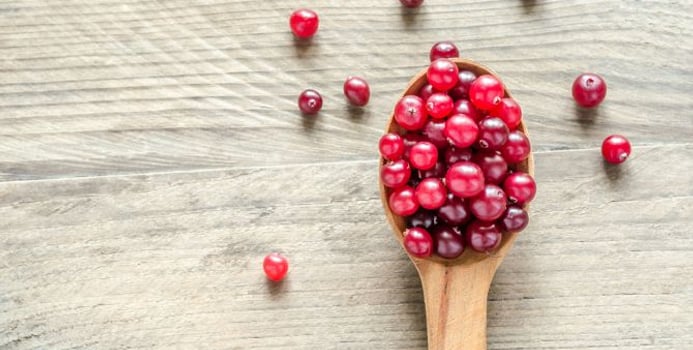Cranberries have remained a widely popular fruit in North America for hundreds of years. The fruit is highly regarded for its rich nutritional content and medicinal properties. The small, oval-shaped berries are bright red in color and resemble grapes. The fruit is commonly used to make juice and sauces. When dried, it can be added to cereal to boost nutritional value. One cup of the berries, about 100 grams, contains 40 calories. The fruit is a good source of vitamins C and K. Mineral content includes magnesium, phosphorous, potassium and calcium. The berries also contain dietary fiber and various phytonutrients. These nutrients have several health benefits.
Vitamin C
Cranberries are an excellent source of vitamin C. They make a good choice of fruit if you want to improve your dental health. Vitamin C is a powerful antioxidant which helps to hinder bacteria from attaching to the gums and teeth. This includes bacteria that help to form cavities. In this way, the fruit can help to prevent dental plaque which is one of the causes of gum disease. Half a cup of the berries provides 16 percent of the daily requirements for vitamin C.
Vitamin K
The fruit is a good source of vitamin K which plays a vital role in proper blood clotting. If you suffer from heavy menstrual bleeding or bleeding gums, foods that contain vitamin K can help to stabilize the condition. Vitamin K promotes cardiovascular health. It plays a vital role in prevention of calcification of the arteries. Calcification refers to a process where calcium builds up in tissues and blood vessels, causing them to harden. This restricts blood flow and increases the risk of stroke and heart disease. Vitamin K also promotes the health of your bones. It gives the bones higher resilience which helps to prevent fractures. Research has established that vitamin K can help prevent osteoporosis, a condition associated with bone density loss. One cup of cranberries provides 8 percent of the daily requirements for vitamin K.
Phosphorous
The phosphorous content in cranberries can help to build and strengthen your bones and teeth. Phosphorous also facilitates the activities of many of the body's enzymes. One cup of the berries provides 3 percent of the daily requirements for phosphorous.
Fiber
Cranberries are a rich source of fiber. Half a cup provides about 15 percent of the daily value for fiber. This promotes healthy digestive activities. The fiber gives bulk to stool and facilitates quicker elimination from the gut. This helps to prevent constipation. If you're on a weight loss program, the berries are a good choice of fruit to include in your diet. Once consumed, the fiber contributes to a "full" sensation which causes you to eat less. This supports weight loss endeavors.
Cranberries and Oxalates
The fruit contains oxalates which contribute to the formation of kidney stones. Oxalates are organic acids that occur naturally in humans, animals and plants. A high concentration of oxalates in body fluids leads to their crystallization which creates kidney stones. Consumption of more than 1 liter of cranberry juice daily increases the risk of kidney stones. If you suffer from kidney or gallbladder problems it is best to limit your consumption of the fruit.



